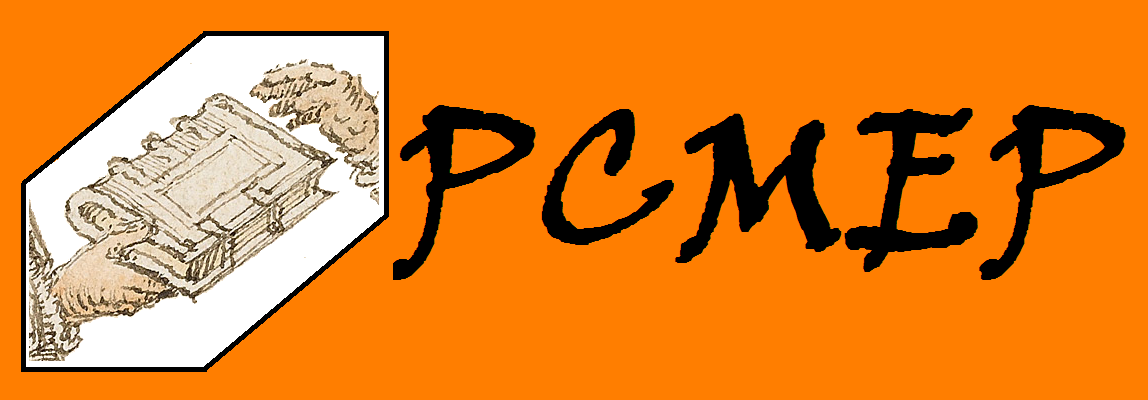The Parsed Corpus of
Middle English Poetry (PCMEP)
PCMEP Text Information
The Fox and the Wolf
Back to PCMEP texts
About the text:
About the edition and manuscript base:
About the file:
Other:
| Text name: | The Fox and the Wolf |
| Alternative names: | Of the Vox and of the Wolf, A fox gan out of the woods go |
| Content: | The Fox and the Wolf narrates the tale of a hungry and thirsty fox (Reynard) who enters the henhous of a friary, eats several hens and subsequently falls into a deep well with two buckets. As the wolf (Sigrim) comes along, the fox promises him that Paradise awaits at the bottom of the pit. Enticed by the prospect of the bliss of heaven, the wolf jumps into the second bucket and sinks down while the fox rises up. The Fox and the Wolf is the earliest and only pre-Chaucerian English beast fable. It may derive from episodes of the French allegory Roman de Renard. |
| Genre/subjects: | fable, allegory, satire, animals, humor, tale |
| Dialect of original composition: | Unknown The original could, like its single manuscript witness, come from the South-West. The Fox and the Wolf might be one of those "texts [for which the scribe] had exemplars in local forms of language not too different from his own [West-Midland dialect]" (Laing 2008: 15). On the other hand, it is possible that the dialect of the original was Southern as evidenced by "the forms awecche, recche, the plural forms hennen etc., the ending -eþ in the third plural of the present indicative, the preservation of the prefix i- in verb forms" (McKnight 1913: lxi). |
| Date of original composition: | 1250-1275 "The date of composition was not far from 1275" (McKnight 1913: lxi). The poem is "of about 1250 or 1250-1275" (Wells 1916: 184). The poem was written before 1300 (Fichte & Kemmler 2005: 203). |
| Suggested date: | 1275 |
| PCMEP period: | 2a (1250-1300) |
| Versification: | couplets, aa, four-stress verses |
| Index of ME Verse: | 35 (IMEV), 35 (NIMEV) |
| Digital Index of ME Verse: | 46 |
| Wells: | 2.25 |
| MEC HyperBibliography: | Fox & W. |
About the edition and manuscript base:
| Edition: | Wright, Thomas & Halliwell-Phillipps, James O. 1845. Reliquiae Antiquae. Volume 2. London: Smith. 272-8. |
| Manuscript used for edition: | Oxford, Bodleian Library, Digby 86 (SC 1687), ff. 138r-140r |
| Online manuscript description: | LAEME Manuscripts of the West Midlands (item 49) Summary catalogue of Western manuscripts in the Bodleian Library at Oxford, no. 1687 |
| Manuscript dialect: | West-Midlands The manuscript language has been localized to Gloucestershire or Worcestershire (McIntosh et al. 1986: 197). Support for the view that the manuscript is from the West-Midlands is also provided by external evidence surrounding a kalendar of saints from the diocese of Worcester, the occurrence of the place names Ridmerley and Pendock, and references to three Worcestershire families (Brown 1932, Miller 1963, Tschann and Parkes 1996, Laing 2000). LAEME localizes the manuscript more specifically to "Redmarley D’Abitot, N[orth]W[est] Glouc[ester]s[hire]" (LAEME item 2002). |
| Manuscript date: | s. xiii-ex The manuscript has been dated to 1272–1282 based on a list of kings on f. 205v ending with Edward I, who ruled from 1272, and the Roman numeral .x., interpeted as the tenth year of his reign, 1282 (Tschann & Parkes 1996: xxxvi–xxxvii). The online version of the Middle English Dictionary lists the manuscript date as "?a1300." With respect to the text The Fox and the Wolf specifically, scholars have suggested manuscript dates such "between 1272 and 1283" (McKnight 1913: xxxix, xli) or "1275-1300" (Dunn and Byrnes 1990: 166). |
About the file:
| File name: | M2a.FoxWolf |
| ID: | FoxWolf,x.y.z: x=token, y=page, z=line Lines are not numbered explicitly in the edition. |
| Word count: | 1,816 |
| Token count: | 225 |
| Line count: | 295 |
Other:
| General notes: | For the relationship between the Middle English The Fox and the Wolf and other comparable medieval beast fables, see McKnight 1913: xliv-lx. |
| Remarks on parses: | The line breaks follow the rhyming scheme as in Wright Halliwell-Phillipps' (1845 : 272-8) edition. Thorn is represented as The parses are generally unproblematic. |
References
Brown, Carleton F. 1932. English Lyrics of the XIIIth Century. Oxford: Clarendon.
Dunn, Charles W. & Byrnes, Edward T. 19902. Middle English Literature. New York: Routledge.
Fichte, Jörg O. & Kemmler, Fritz. 2005.3Alt- und mittelenglische Literatur: eine Einführung. Tübingen: Narr.
Laing, Margaret. 2000. 'The Linguistic Stratification of the Middle English Texts in Oxford, Bodleian Library, MS Digby 86. ' Neuphilologische Mitteilungen 101. 523–569.
Laing, Margaret. 2008. 'The Early Middle English Scribe: Sprach er wie er schrieb?' In: Dossena, Marina, Dury, Richard and Gotti, Maurizio (eds.) Selected papers from the fourteenth International Conference on English Historical Linguistics (ICEHL 14), Bergamo, 21–25 August 2006. Volume III: Geo-Historical Variation in English. Amerstdam: John Benjamins. 1-44.
McIntosh, Angus, Samuels, Michael L. & Benskin, Michael. 1986. A Linguistic Atlas of Late Medieval English. Aberdeen: Aberdeen University Press.
McKnight, George H. 1913. Middle English Humorous Tales in Verse. Boston and London: Heath. (available online)
Miller, Brian D. H. 1963. 'The Early History of Bodleian Ms. Digby 86.' Annuale medievale 4. 26-56.
Tschann, Judith & Parkes, Malcolm. 1996. Facsimile of Oxford, Bodleian Library, MS Digby 86. EETS s.s.16. Oxford: Oxford University Press.
Wells, John E. 1916. Manual of the Writings in Middle English, 1050-1400. New Haven, CT: Connecticut Academy of Arts and Sciences. (available online)
Wright, Thomas & Halliwell-Phillipps, James O. 1845. Reliquiae Antiquae. Volume 2. London: Smith. (available online)
